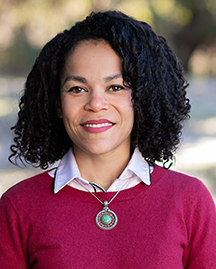• Morgan Craven, J.D. • IDRA Newsletter • February 2022 •
 At IDRA, we advocate educational policies and practices that promote excellent schools for all students. As we think deeply about the substance of policies, we also work to change the policymaking process itself. This process often excludes people of color, working families and young people, who face many barriers to having a meaningful say in the rules that govern their schools and communities.
At IDRA, we advocate educational policies and practices that promote excellent schools for all students. As we think deeply about the substance of policies, we also work to change the policymaking process itself. This process often excludes people of color, working families and young people, who face many barriers to having a meaningful say in the rules that govern their schools and communities.
Some of those barriers are logistical and bar participation for many people. For example, it is hard to attend a legislative hearing about school discipline when it is held at 11:30 on a Tuesday morning in the state capital. It is difficult to reach out to the members of a committee when many of them have no staffers who speak languages other than English. It is nearly impossible to share perspectives and opinions when legislators cancel or schedule the public comment portion of a hearing at the last minute.
Additionally, some of these barriers to meaningful engagement are due to a confusing policymaking process, which leaves many feeling powerless to participate in it. We believe everyone – especially people from systemically-marginalized communities – should see themselves as advocates who have an important story to tell and ideas to share. These communities should not be used as political pawns. They should be supported as they develop community-driven strategies that promote safe and equitable schools (IDRA, Jan. 2022).
This sort of authentic and meaningful engagement in advocacy helps to change the policymaking process itself and leads to more equitable and sustainable systems and laws that benefit all people.
We at IDRA have learned many lessons over nearly 50 years that have shaped our community-centered approach to advocacy. Our family leadership in education (Montemayor & Chavkin, 2016) and Education CAFE (Montemayor, 2017) models support local education advocacy projects. Our statewide policy campaigns in Texas and Georgia focus on the collective power of young people, families, educators and other advocates.
We share what we have learned about thoughtful advocacy and policymaking, specifically lessons learned during the recent classroom censorship debates in dozens of states across the country.
From our efforts on this issue in Texas and Georgia, we created an advocacy guide (IDRA, 2022). The guide highlights six lessons learned and six key advocacy tools that were useful in our work, including the importance of centering young people and families of color, building cross-sector coalitions, identifying clear messaging, and engaging in collective policy analyses and decision-making.
We invite you to share this guide with individuals and groups seeking to engage in their own advocacy campaigns and who want practical tips and resources for how to oppose harmful classroom censorship policies in their states and communities.
Resources
IDRA. (January 20, 2022). Families Must be Centered in Education Policymaking, Not Used as Puppets, IDRA Statement. Knowledge is Power.
IDRA. (2022). Advocacy Lessons Learned from Fighting Against Classroom Censorship Policies. IDRA.
Montemayor, A.M. (May 2017). IDRA Education CAFE – A Structure for Families Transforming Schools in their Communities. IDRA Newsletter.
Montemayor, A.M., & Chavkin, N. (September 2016). Liderazgo Familiar Intergeneracional: Intergenerational Family Leadership as a New Paradigm of Family Engagement. VUE Voices in Urban Education.
Morgan Craven, J.D., is the IDRA national director of policy, advocacy and community engagement. Comments and questions may be directed to her via email at morgan.craven@idra.org.
[©2022, IDRA. This article originally appeared in the February 2022 IDRA Newsletter by the Intercultural Development Research Association. Permission to reproduce this article is granted provided the article is reprinted in its entirety and proper credit is given to IDRA and the author.]



